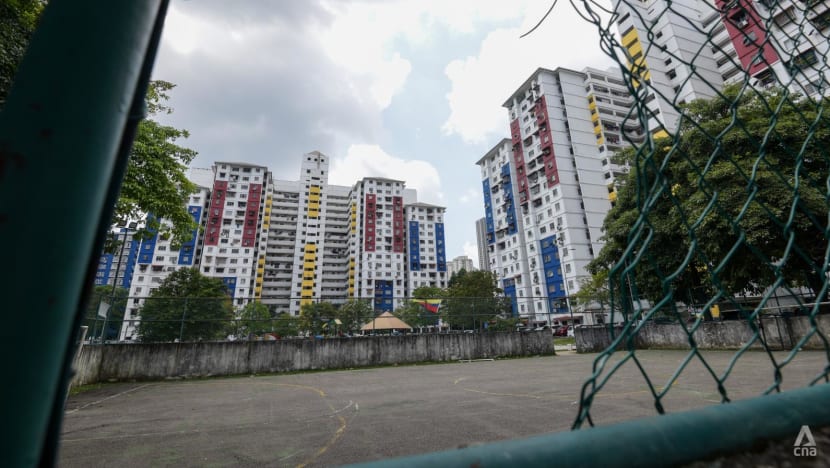‘Many are living from meal to meal’: Malaysian government’s claim of hardcore poverty eradication draws scepticism
Hardcore poverty has been eliminated in two states as well as Kuala Lumpur, Malaysian Prime Minister Anwar Ibrahim recently declared. Reality isn’t as rosy, say aid workers and experts.


This audio is generated by an AI tool.
KUALA LUMPUR: It is very difficult to have a conversation with Mr Kuan Chee Heng without one of his four phones ringing every few minutes.
Almost all calls the social activist receives are requests for assistance.
They could be requests for money to buy a coffin for a dead parent, an ambulance ride for a patient who cannot afford to go to the hospital, RM30 (US$6.30) for a sack of rice and groceries, or help with utility bills that are months overdue.
“There are many of these cases every day. I have been doing this for 10 years and it seems to get worse day by day,” said the Kuala Lumpur-based founder of non-governmental organisation (NGO) Uncle Kentang, showing CNA some messages he receives on WhatsApp.
He was therefore a little puzzled when Prime Minister Anwar Ibrahim said earlier this month that there was no longer extreme poverty in Kuala Lumpur, Melaka and Negeri Sembilan.
The drive to eradicate hardcore poverty encompassed all races, not only Malays, state news agency Bernama reported Mr Anwar as saying.
“In Kuala Lumpur, Melaka and Negeri Sembilan, based on the figures we have obtained, we have achieved 100 per cent (success),” he said at the Associated Chinese Chambers of Commerce and Industry of Malaysia’s Chinese New Year celebration in Kuala Lumpur on Feb 15.
In March last year, Economy Minister Rafizi Ramli told parliament that the hardcore poor referred to those with incomes of less than RM1,169, while those in absolute poverty had an income of less than RM2,208.
Mr Anwar’s office did not respond to queries on how the government determined there was no longer hardcore poverty in the capital and two states. But Bernama reported Melaka chief minister Ab Rauf Yusoh saying the state's achievement was based on total household income for each family.
Aid workers like Mr Kuan say reality on the ground is different.

SALARIES NOT KEEPING UP WITH COSTS
Mr William Cheah of Kembara Kitchen, a social enterprise, told CNA that requests for assistance remain relatively high.
“I don’t have the data, but if people weren’t impoverished, they wouldn’t be asking for help. I am not talking about luxurious goods but about basic needs,” he said.
Mr Anwar’s statement could be an over-generalisation, added Mr Cheah, whose organisation provides cooked meals and other help to the poor.
“What does he mean by eradicated? … If you say 100 per cent, then I would say no. You can drive around areas like Chow Kit (in Kuala Lumpur) and observe very high levels of poverty,” said Mr Cheah.
Kuala Lumpur has a population of about two million, and many low-income earners live in public housing, or the People's Housing Programme (PPR), where conditions are cramped.
Aid workers also question if hardcore poverty can be eradicated at a time when inflation is generally high and the cost of basic goods is increasing.
Mr Kuan gave a scenario of someone earning Malaysia’s minimum wage of RM1,500 but with five children to feed.
“Let’s just say you must pay rental of RM700 a month and RM100 for utilities. Set aside another RM200 for transportation, and how much do you have left?” he said. If anyone in the household is ill, there could be medical costs incurred, he added.
A Bank Negara Malaysia survey in 2021 found almost half of Malaysians have difficulty raising RM1,000 in emergency funds, he noted.
“This means that many are living from meal to meal,” he said. “Salaries are not high enough to keep up with the rising costs.”
POVERTY IS MULTI-DIMENSIONAL
Mr Anwar has said eradicating hardcore poverty is a key part of his government’s agenda.
At the tabling of the 12th Malaysia Plan (12MP) mid-term review in September last year, he said the government was still struggling to lift nearly 114,000 hardcore poor families across the country out of poverty.
The government provides cash assistance to low-income earners through various programmes, while Malaysia’s minimum monthly wage of RM1,500 was implemented in May 2022.
An economist told CNA that the government was not necessarily wrong in its proclamation, but is most likely basing it on income alone.
In Malaysia, there are two sources of poverty figures – the department of statistics and the e-Kasih database developed by the government in 2007 to monitor poverty in the country, said Dr Madeline Berma of the Academy of Sciences Malaysia.
“It may be right, but this could be a very narrow interpretation of what hardcore poverty is …The reality on the ground is people are struggling,” she said.
Politicians may prefer to use only income to measure poverty as a single indicator is “easier”, said Dr Madeline, who has done research on poverty and indigenous communities.
But researchers prefer a multi-dimensional index that includes indicators for health and education, as well as living conditions, even if such data is more difficult to measure and collect, she added.
Some politicians, however, agree with her.
In an episode of the popular podcast Keluar Sekejap that aired on Feb 17, former minister Khairy Jamaluddin said Mr Anwar’s statement could be termed “odd”.
Even if Mr Anwar is “technically right”, poverty is an issue that goes beyond income, said Mr Khairy, a former health minister and Member of Parliament of Rembau in Negeri Sembilan from 2008 to 2022.
“In this situation, maybe the PM wants to tick the box … that hardcore poverty in those three states has been solved,” he said in his podcast. “You can still tick the box by saying that in terms of income it has been solved, but we acknowledge that poverty is more than just income. It is multi-dimensional.”
The government should be careful in defining poverty, said Socialist Party of Malaysia (PSM) chairperson Dr Jeyakumar Jeyaraj.
Malaysia adopts “low-wage” policies to be competitive, he said, and having a “cut-off point” to define poverty “means that those just above that level are not (considered) poor”.
“This obscures the fact that the incomes being earned are not enough to sustain families, some of whom have parents that are working 14 hours a day,” said the former Sungai Siput parliamentarian whose party fights for workers and wage issues, among other things.
Meanwhile, social workers like Mr Kuan have their hands full.
“The situation is not as rosy as we might think it is,” he said. “I will definitely be happy when the services of my NGO and others are not needed. This would mean the government has done the best for them."


















